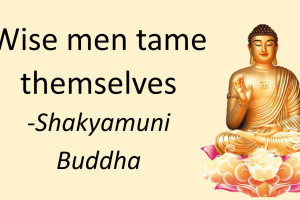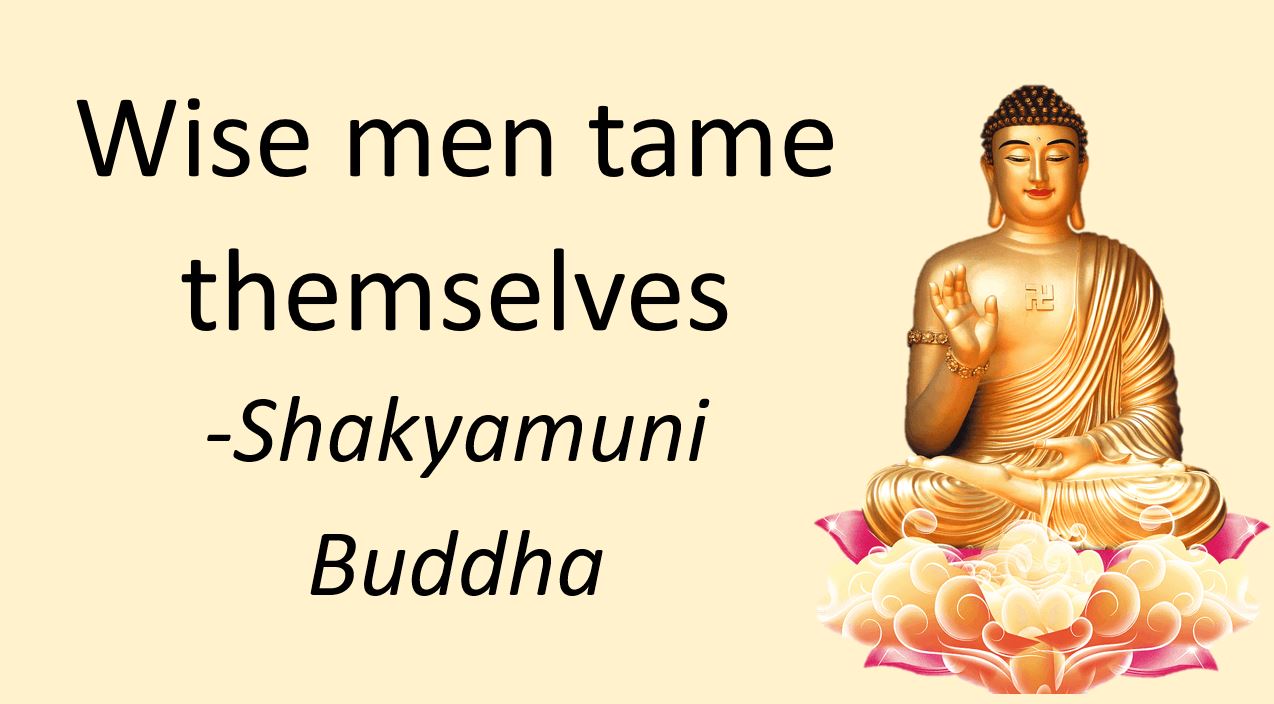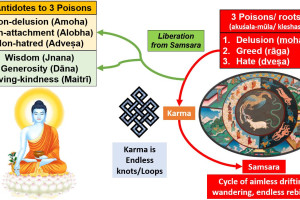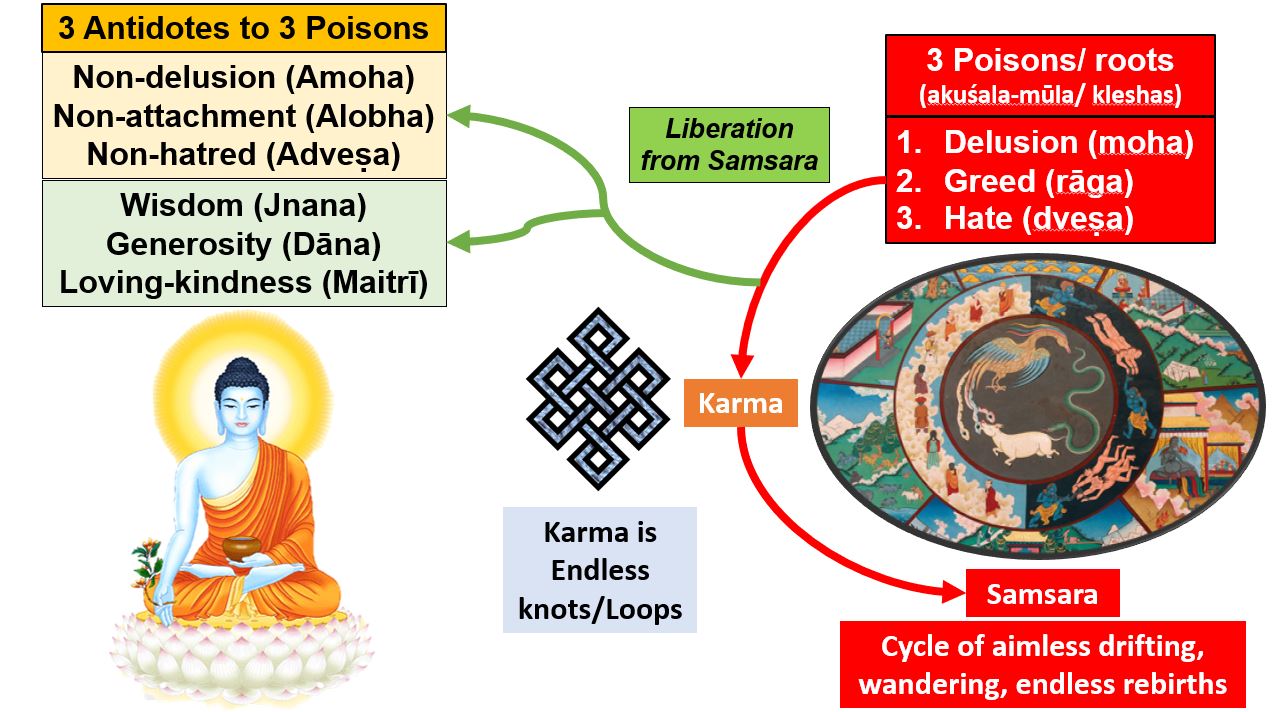Buddha Series-1: Teaching of Buddha
18 January 2023
Houston, Texas
I made this poster for my understanding and usefulness.


-
- · Marcia Beloved
- ·
That’s the essence, Ani.
By taming the mind, one replaces ignorance with wisdom, painstakingly, one moment at a time, trying to create long segments of continuous wisdom.
I am wondering, though, why you correlated greed with raga instead of lobha.-
Sorry for getting back late on this.
Yes, you are correct and great catch.
"lobha" is greed, lobha is more precise than raga, agreed!
Every buddhist text book use these Sanskrit or pali words in different context and definitions.
In some writings, Raga is used and other lobha is used.
Here is an example:
Excerpt from wikipedia page:
Raga (Sanskrit: राग, IAST: rāga; Pali rāga; Tibetan: 'dod chags) is a Buddhist and Hindu concept of character affliction or poison referring to any form of "greed, sensuality, lust, desire" or "attachment to a sensory object
Rāga literally means 'color or hue' in Sanskrit, but appears in Buddhist texts as a form of blemish, personal impurity or fundamental character affliction
In my usage here, I used these words in these context as shown below
- Greed (Raga) as Addition → greed, sensuality, lust, desire
- Hate (dvesha) as Subtraction → hate, aversion, annihilation
- Delusion (moha) as Confusion → empty, unreal, vain, useless, foolish
I took this from a buddhist website, I liked the addition, subtraction analogy to describe these 3 poisons of things.
Here, greed and lust are clubbed as one, the addition category.
Thanks for asking!
-
- · Marcia Beloved
- ·
Thank you. I was unaware of those definitions of raga so no correction needed!
I mainly follow Theravada Buddhism but have taken inspiration from Tibetan teachings.
The Buddha Series is a nice tribute to Buddha’s teachings.






